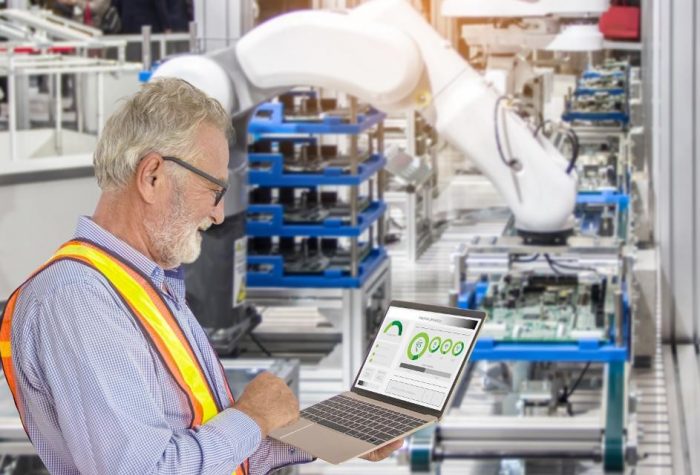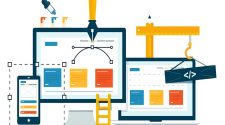The manufacturing industry is undergoing a revolution. The Fourth Industrial Revolution, often known as Industry 4.0, has the potential to fundamentally change the way manufacturing enterprises function today. What separates this revolution from the previous three is the velocity or speed at which breakthroughs are occurring, the disruptive impact it has on every sector, from public to private, and potential transformation of every system, from production, management, and governance. While the potential of Industry 4.0 remains unprecedented, manufacturing industry has been slow to adopt the digital transformation that is the driving force behind Industry 4.0. More importantly, rapid advances in technology, changing customer demands, and a seemingly endless supply of data have combined to make digital transformation not only possible, but necessary for survival.

Digital Transformation – The Next Big Leap for Manufacturing
Digital transformation has been defined in many ways depending on the perspective and context it is being defined within. In the case of manufacturing, it can be defined as reflective shifts in business activities, competencies, processes, and business models to leverage the opportunities that technology provides. transformation is clearly not the same as digital upgrade. Unlike digital transformation, digital upgrade is the use of digital technologies to improve efficiency of something you are already doing. Digital transformation, on the other hand requires strategic investment in technology focused on transforming business through improved customer experience, operational efficiencies and shifts in business model.
Digital transformation has already impacted many industries like financial services, retail, telecommunications etc. The transformations have created a paradigm shift in the behavioral pattern of businesses and consumers unconditionally. The pace at which a business communicates with their stakeholders, customers, vendors, and employees, has become shorter and more relevant and customer expectations have drastically expanded to include personalized service, flexibility, lower upfront costs, and reduced risks.
Compared to other industries, manufacturing has been slow to fully embrace digital transformation. Deloitte reported that only 14 percent of executives feel confident that their organizations are ready to harness the opportunities associated with digital transformation. However, the time is just right for the manufacturers to digitally transform their operations to benefit from operational efficiency, productivity gains, new sources of revenue generation, improved time-to-market and more. While there is ambiguity about how to effectively transform businesses, there is immense clarity in the competitive advantage that digital transformation provides.
Digital transformation enables manufacturers to process improvements, reduction of errors and time savings, understanding and predicting customer demands, personalized production, and more. And while manufacturing clearly stands to gain from a digital transformation, it is important to note that 70 percent of large scale change initiatives fail. Most of the times this happens because technology investments happen in isolation and are not preceded by strategic discussions on operational, organizational and business model outcomes that technology is meant to bring about. In addition, in many instances, organizational structure and culture is not aligned with the desired outcome of the change adding frictions and complexity in the digital transformation journey.
Technologies That Have Made the Revolution Happen
There are many evolving technologies that are revolutionizing the way manufacturers do business. Which of these technologies should be considered depends solely on the business objectives that an organization is seeking to achieve. An organization should clearly set operational, organizational and business model objectives ahead of technology investments to ensure effective returns on technologies which may require an extended, complex and costly initiative. In short, expecting results within a short duration is not advisable as organizations normally have long upgrade cycles. Depending on the nature of the organization and goals, a wide variety of modern technologies such as industrial internet of things, augmented reality, additive manufacturing, blockchain technologies, robotics, artificial intelligence, or machine learning have the potential to truly transform manufacturers do business.
Digital transformation is the future of all industries and it has become an inevitable part of businesses around the world. The business world today is too advanced for conventional manufacturing methods. There are drastic changes in customer expectations, product design, production planning, implementation and sustainability of business operations. It is always wise to start transforming now than reacting to change at a later stage.
















